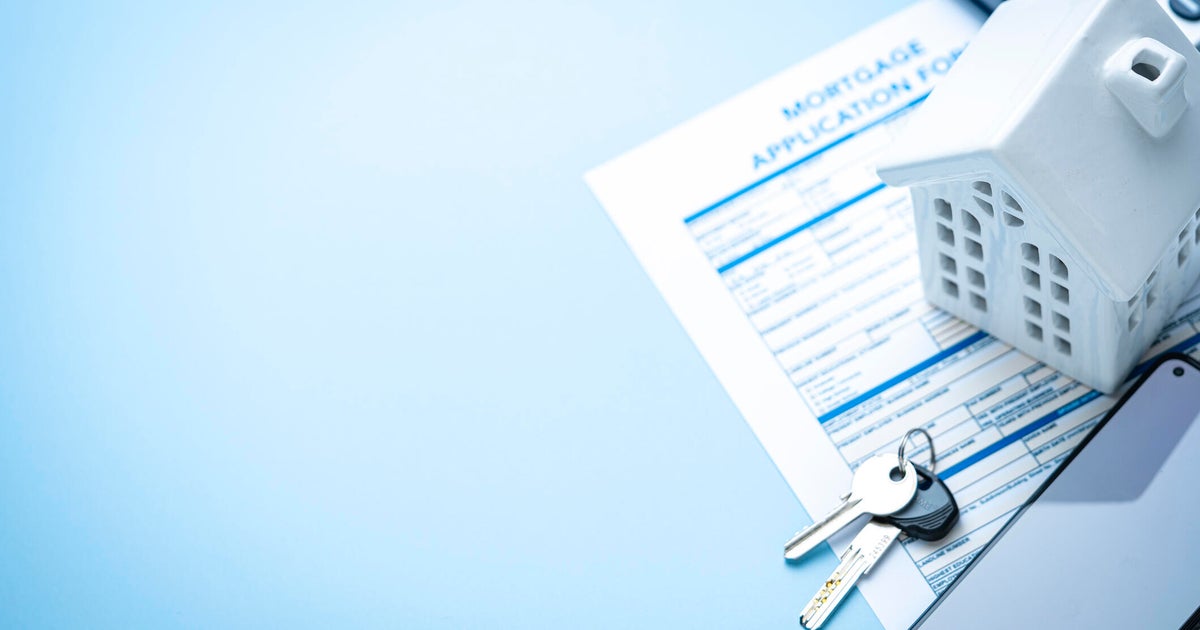Mortgage rates just hit 7.09%, the highest since 2002. Will they ever come down?
The thirty-year mortgage rate hit 7.09% in early August, according to new data from the Mortgage Bankers Association.
That's the highest level since 2002, based on historic data from Freddie Mac, and rates aren't expected to drop anytime soon, making it a difficult time to be a homebuyer.
A couple of factors are at play in the rising rates revealed in the MBA's report Thursday. For one, an aggressive series of interest rate hikes by the Fed have made mortgages, auto loans, credit cards and business borrowing more expensive. The central bank recently raised its target federal funds rate to between 5.25% and 5.5%, once again putting upward pressure on mortgage rates.
"[Mortgage rates] are about twice as high as they were during the pandemic. So owing to that, buying a house, even if prices stay the same or fall, is much more expensive in most circumstances because rates are so much higher," LendingTree senior economic Jacob Channel told CBS MoneyWatch.
- What if mortgage interest rates don't fall?
- The Fed raised interest rates again — here's what to expect for mortgages
- How high will mortgage rates climb? Experts weigh in
Fitch Ratings' downgrading of U.S. debt from the highest rating also contributed to the most recent spike in mortgage rates, according to Channel.
"When that happens, people can panic and sell bonds, interest rates have to go up, so mortgage rates follow," he told CBS MoneyWatch.
When will mortgage rates go back down?
There's no telling when mortgage rates will drop again, but they won't necessarily remain above 7% either, experts say. Instead, homebuyers should expect rates to ebb and flow over the next few weeks.
"They are often volatile on week to week basis. Generally speaking, they don't stay flat, they are often moving up or down," Channel said.
While he wouldn't be surprised if rates drop below 7% in the coming weeks, he expects they will remain higher than usual.
"Buyers shouldn't expect a ton of relief. They should expect mortgage rates to remain relatively steep, in the 6% to 7% range. But just because they've risen over last few weeks doesn't mean they'll keep rising in perpetuity," Channel said.
Even if rates dip slightly, buying a home will still remain relatively unaffordable for many prospective homebuyers.
"If there is good news, it's that they're not going to skyrocket. The bad news is they won't plummet. People should expect rates to drop lower than what they are, but to remain relatively steep for some time," Channel said.
Harder to qualify for loans
High mortgage rates are also making lenders choosier about who qualifies for a loan.
Data from the Mortgage Bankers Association (MBA) released Tuesday showed that credit availability decreased in July, with its monthly Mortgage Credit Availability Index falling by 0.3% to 96.3.
That's an indicator that lending standards are tightening, the group said.
The higher the mortgage rate, the higher borrowers' monthly payments are. That means they'll need higher incomes and better credit scores in order for lenders to feel comfortable making loans.
- After falling for months, home prices are rising again. Here's why.
- Mortgage rates are soaring again — here's how much that adds to cost of buying a home
- Check out some of the hottest real estate markets in the U.S.
"Lenders are being more stringent about who they're lending to. Credit availability is extremely tight out there in the market," Black Knight's Andy Walden told CBS MoneyWatch.
The bottom line is that while mortgage rates while will continue to fluctuate, they will remain high.
"That said, the fact is rates will remain relatively steep and buying a house right now is in turn going to remain steep, so it's something people are going to have to get used to," Channel said.



